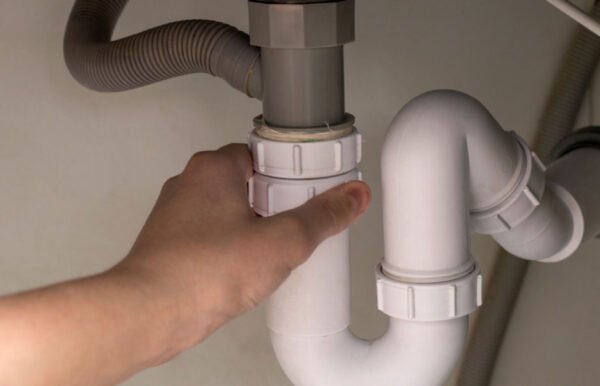
Table of Contents
- Introduction to Nursing in Healthcare
- The Multifaceted Responsibilities of Nurses
- Importance of Continuing Education
- Impact of Technology on Nursing
- Nurse-Patient Relationship
- Challenges Faced by Nurses
- Future Trends in Nursing
- Conclusion
Introduction to Nursing in Healthcare
Nursing stands as one of the most essential pillars of the healthcare system. Nurses are at the forefront, providing critical care and support to patients and their families. They work in various settings, from bustling hospitals and serene clinics to community health centers and educational institutions. The nurse’s role is indispensable for maintaining the health and well-being of our society. For those considering a healthcare career, exploring Online Nursing Programs in Ohio can be an advantageous step towards achieving their goals.
The scope of nursing extends far beyond bedside care. Nurses play pivotal roles in patient advocacy, policy-making, and education. Their holistic approach to patient care ensures that patients’ physical and emotional needs are meticulously met. This comprehensive involvement underscores the versatility and indispensable nature of the nursing profession in every facet of the healthcare system.
The Multifaceted Responsibilities of Nurses
Nurses wear many hats and serve in a variety of roles. They are not just caregivers but also educators, advocates, and researchers. Their responsibilities range widely from administering medication and managing patient care to educating patients about health conditions and preventive measures. Each of these roles is integral to the seamless functioning of healthcare facilities. For instance, nurses often serve as a bridge between doctors and patients, ensuring clear and effective communication.
Additionally, nurses are deeply involved in community outreach programs, helping to spread awareness and educate the public about health issues and preventive healthcare measures. This proactive community involvement plays a crucial role in promoting public health and preventing the spread of diseases. By acting as both caregivers and educators, nurses help to create healthier, more informed communities.
Importance of Continuing Education
Continuing education is crucial for nurses to stay abreast of the latest medical advancements and best practices. Programs like those provided by the NIH offer invaluable resources for nurses to expand their knowledge and hone their skills. Continuous learning not only enhances nursing practice but also significantly improves patient outcomes.
With the rapid evolution of medical technology and treatments, ongoing education ensures that nurses can provide the most up-to-date and effective care. Many healthcare institutions like Youngstown State University mandate continuing education as part of their regulatory requirements, emphasizing its importance in maintaining professional competency. Furthermore, career advancement often hinges on pursuing further education, making it a pathway to leadership roles and specialized fields within nursing.
Impact of Technology on Nursing
Technology has dramatically transformed the nursing field. Technological advancements, from electronic health records to telemedicine, have streamlined healthcare processes and significantly improved patient outcomes. Nurses who stay current with these technological changes can offer patients more efficient and effective care.
For example, electronic health records (EHRs) have revolutionized how patient information is stored and accessed, making it easier for nurses to track patient histories and coordinate care. Similarly, telemedicine has opened up new avenues for patient interaction, especially for those in remote or underserved areas. These technological tools enhance the efficiency of healthcare delivery and contribute to more personalized and timely patient care.
Nurse-Patient Relationship
Building a strong nurse-patient relationship is essential for providing effective care. Trust and communication are at the core of this relationship. Nurses provide medical care and emotional support, which can significantly influence a patient’s recovery and overall experience within the healthcare system.
A positive nurse-patient relationship can lead to better patient adherence to treatment plans, improved health outcomes, and higher patient satisfaction rates. Nurses often act as patient advocates, ensuring patients’ needs and preferences are respected and addressed. This advocacy is critical in complex healthcare environments where patients feel overwhelmed or vulnerable.
Challenges Faced by Nurses
Nurses face numerous challenges in their line of work, from long hours and shift work to dealing with emotionally charged and critical situations. According to a Forbes article, these challenges can lead to burnout and high turnover rates among nursing staff. Addressing these issues is crucial for sustaining a robust and effective healthcare workforce.
Workplace stress, staffing shortages, and the physical demands of nursing are common difficulties that nurses encounter. Providing adequate support systems, such as mental health resources and manageable work schedules, can help mitigate these challenges. Ensuring a supportive work environment is essential for retaining a committed and effective nursing workforce.
Future Trends in Nursing
The future of nursing is filled with promise, driven by advancements in education, technology, and practice standards. There is a growing emphasis on specialized care, leadership roles for nurses, and the integration of holistic healthcare approaches.
Specialized nursing fields, such as oncology, pediatrics, and geriatrics, are seeing increased demand. These fields allow nurses to focus on specific patient populations, enhancing the quality of care provided. Additionally, leadership and advanced practice roles, such as nurse practitioners and clinical nurse specialists, are expanding, providing pathways for career advancement and positioning nurses as key players in healthcare decision-making.
Conclusion
Nurses are indispensable to the healthcare system, and their roles continually evolve. By embracing education, technology, and compassionate care, nurses can continue to impact patient outcomes and the healthcare landscape profoundly. As the demands on the healthcare system grow, nurses’ contributions will become even more critical in ensuring high-quality, comprehensive care for all patients.



